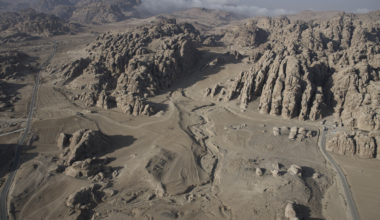The Amman team are working hard to enable and promote CBRL partnerships with the Jordanian heritage community.
In February, the Amman Institute signed an MoU with the International Council on Monuments and Sites-Jordan (ICOMOS-Jordan) to define the relationship between the two parties. This memorandum, which was signed by HRH Princess Dana Firas, President of ICOMOS-Jordan, and Dr Carol Palmer, CBRL Director, included items on organising joint activities, mutual promotion of activities, and inviting ICOMOS-Jordan members to use the AI’s reference library, at its headquarters in Jabal al-Weibdeh. 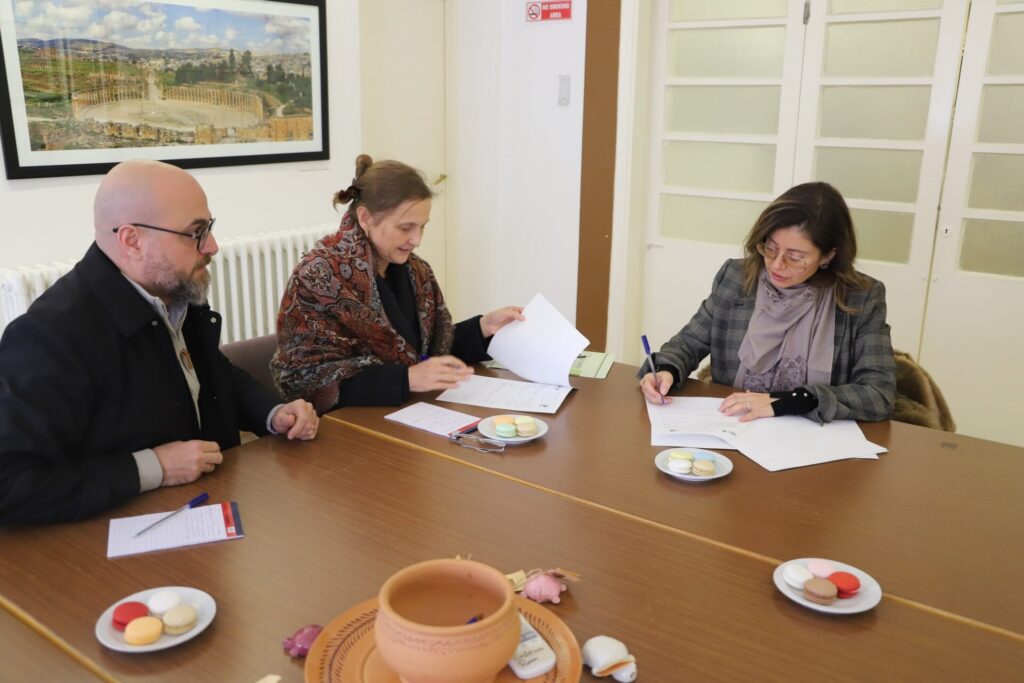
HRH Princess Dana Firas, Dr Carol Palmer, and Firas Bqain, while signing the MoU between CBRL Amman Institute and ICOMOS-Jordan, 2 February.
In celebration of the International Day of Monuments and Sites we cooperated with ICOMOS-Jordan and the Heritage Committee, the Architectural Division of the Jordan Engineers Association (JEA), the Department of Antiquities, Umm el-Jimal Municipality, the Umm el-Jimal Project and Al al-Bayt University, to organise a scientific trip to Umm el-Jimal in Mafraq. The aim of the visit was to learn about the ancient water harvesting systems in the archaeological site during the Nabataean, Roman, Byzantine and Islamic periods.
The scientific trip started with a lecture by Dr Sana Al-Zayoud, Dean of Earth and Environmental Sciences Faculty at Al Al-Bayt University, on her collaborative research on water harvesting at Umm el-Jimal. The lecture was followed by a tour of the archaeological site, during which the water harvesting system features were explained by Samar Arman and Muwaffaq Al-Masaeed from the Umm el-Jamal Project team. More than 50 participants from the Architectural Division, the Heritage Committee, representatives from CBRL Amman Institute and ICOMOS-Jordan, experts in heritage and the local community of Umm el-Jimal, as well as architects, archaeologists and architecture students from Jordanian universities, participated in the visit.
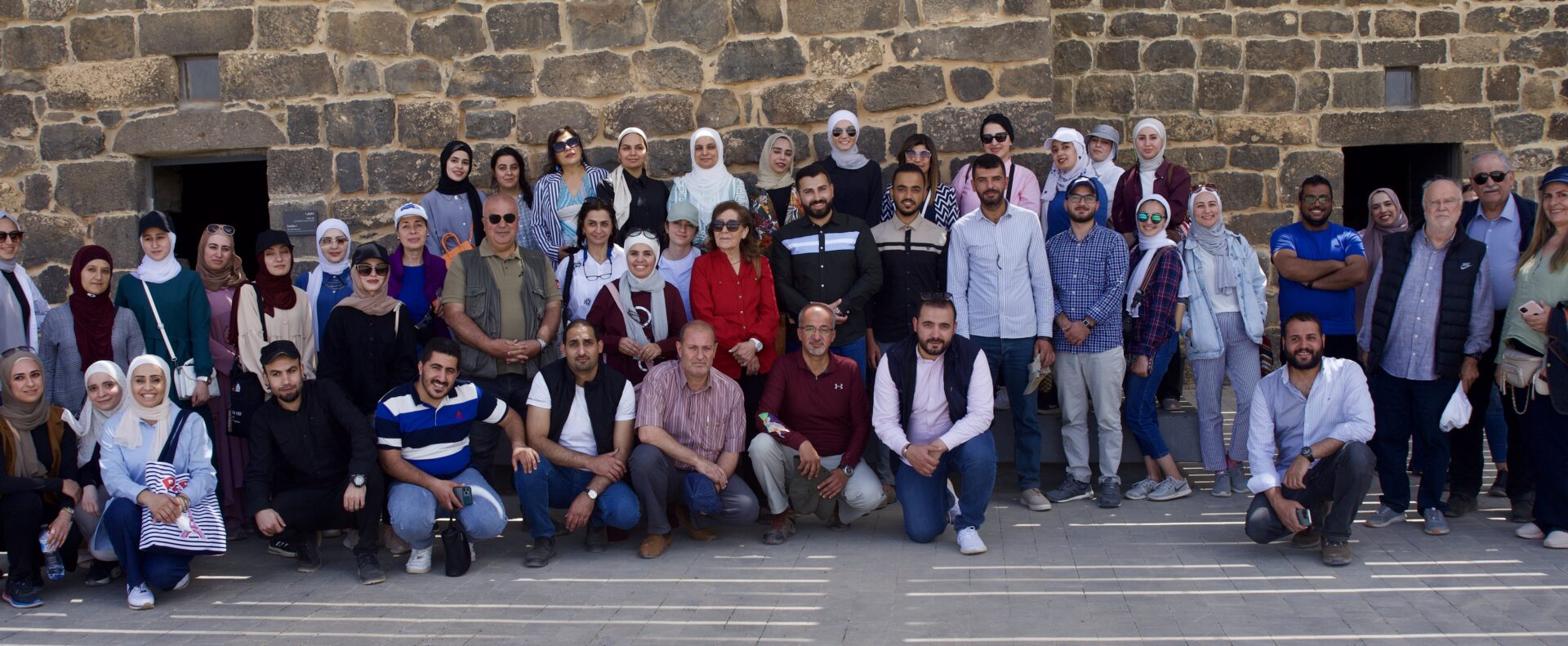 A group photo of umm el-Jimal trip participants, 6 May.
A group photo of umm el-Jimal trip participants, 6 May.
Our well-established relationship with the Department of Antiquities since the 1970s is still flourishing. The Director General of the Department of Antiquities, HE Prof. Fadi Bala’awi, visited our premises in Jabal Al-Weibdeh, where he met Dr Carol Palmer and the team and discussed opportunities for cooperation in archiving, digital transformation, and raising awareness to protect cultural and natural heritage in Jordan. 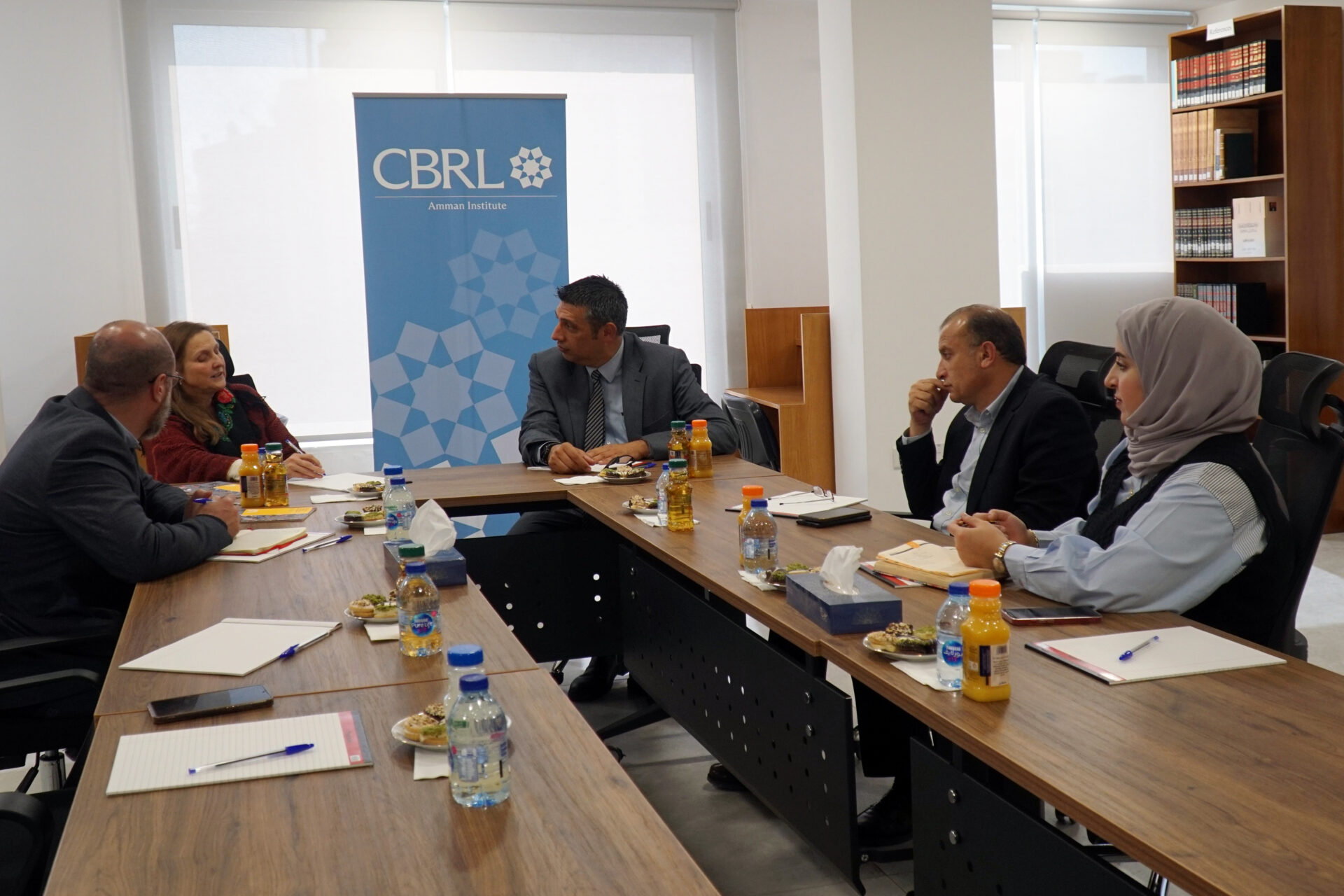
HE Prof. Fadi Bala’awi at the Amman premises, 27 February.
Our Research Officer, Shatha Mubaideen, has been working with researchers from the Hashemite University, Durham University, and the University of Copenhagen to study colonial architecture in As-Safawi, in the Mafraq governorate. As-Safawi is the site of the H5 station, one of the stations on the Kirkuk-Haifa oil pipeline that was constructed in 1934. The site has undergone degradation in recent years and is endangered.
During the past months, the project researchers, in coordination with the Jordanian Armed Forces, the local community of As-Safawi and the APAAME Project conducted a photographic survey of the H5 station, a collection of aerial photography, an analysis of archival material in Britain and a dissemination workshop at the end of the research phase, to gather insights for the future development of the research.
The hybrid dissemination workshop was held in March at CBRL Amman Institute. The workshop was attended by architects and specialists in the built heritage from the Ministry of Tourism and Antiquities, the Department of Antiquities, the Heritage Committee at the Jordan Engineers Association, ICOMOS-Jordan, the Hashemite University, the University of Jordan, the Jordan Times Newspaper as well as the As-Safawi local community.
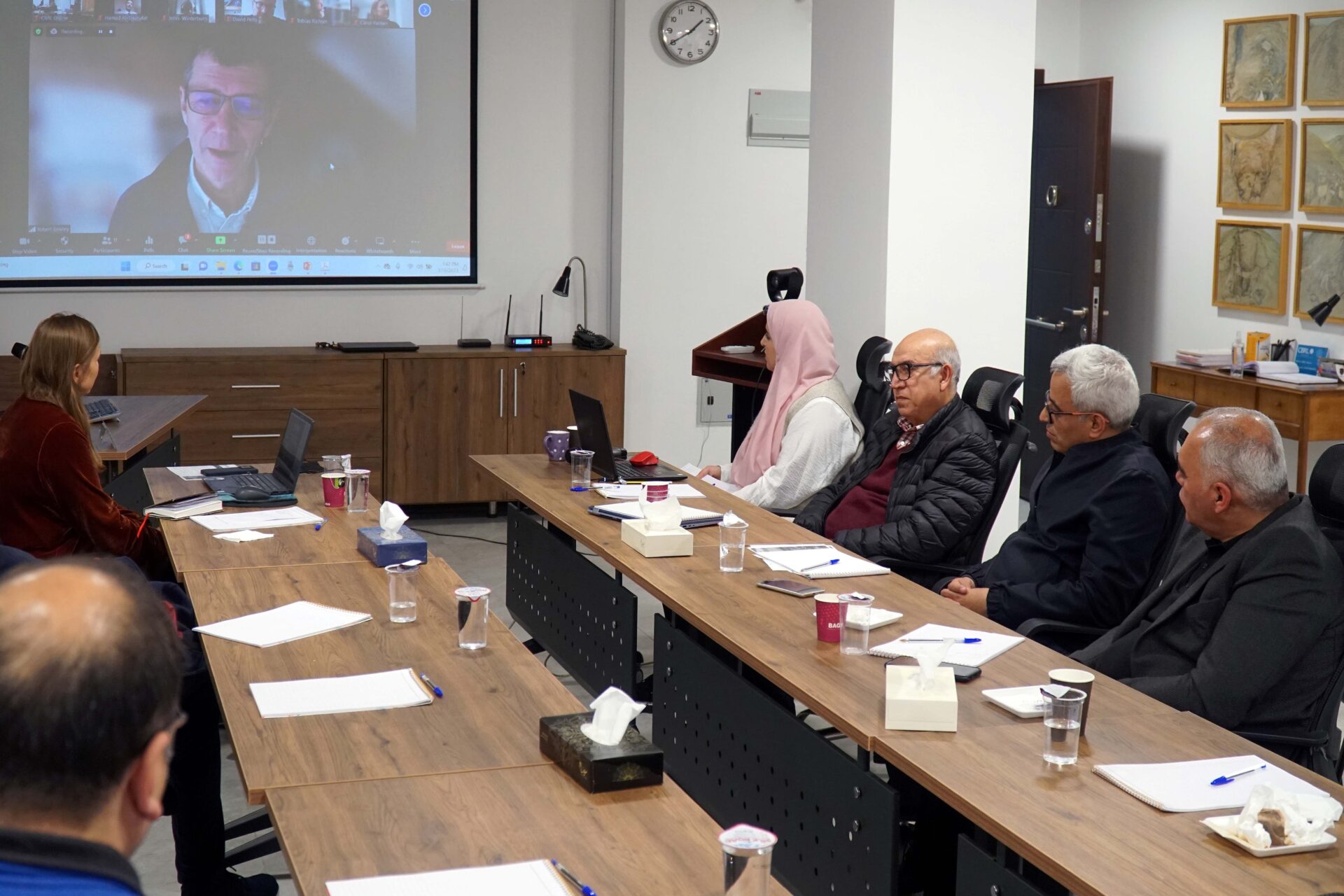
As-Safawi project workshop, 15 March.
As we aim to promote heritage protection broadly, we have organised a meeting and a lecture for the Fikra initiative team, a youthful architectural initiative, to introduce them to the CBRL Amman Institute facilities and services and discuss future collaboration opportunities on architectural heritage documentation and preservation. A lecture on intangible heritage research was organised for their team to support their interactive cultural trails in Amman project idea.  Fikra Initiative team at the lecture given by Toqa al-Oran and Khadija al-Faqeer, 22 May.
Fikra Initiative team at the lecture given by Toqa al-Oran and Khadija al-Faqeer, 22 May.
We are also proud to build a new partnership with Al-Hussein Technical University, through the Seventh Diwan of Heritage and Archaeology that has been going annually since 2018, in cooperation with the Ifpo, ACOR and GPIA. Diwan 7 will be held on Saturday and Sunday, the 22nd and 23rd of July 2023, at HTU, with more than 35 speakers presenting graduation projects and postgraduate theses and undergoing research on heritage-related matters. More details can be found here.
Our library users are increasing in comparison to the numbers in the past years. We have also received Arabic books from the Ministry of Culture to enhance our Arabic book collection and serve all types of users. We have submitted a grant proposal to develop a Library Cultural Programme for the Shoman Foundation in support of building our library community further in Jabal al-Weibdeh.

Dr Yazan al Tall, from the University of Jordan, with his students at AI library, 3 May.
By Shatha Mubaideen
Shatha Mubaideen is Senior Research and Partnerships Officer at the Council for British Research in the Levant (CBRL) Amman Institute. She is an architect who attended graduate school at the University of Jordan, where she received an M.Sc. in Architectural Engineering and Cultural Resource Management. She had the chance to work closely in cultural heritage protection for the past seven years at the Mapping Digital Cultural Heritage in Jordan (MaDiH) project and the Department of Antiquities of Jordan (DoA). Shatha has several publications from her research projects on heritage documentation, heritage education and interpretation. She is also the co-founder of the Amman Heritage Houses Documentation Initiative.














